The chalky cliffs towering above the English Channel offer scenic beauty and vertiginous views

Northern Ireland may have the Giant’s Causeway, Wales its mountains and Scotland its glens, but it’s hard to imagine any geographical phenomenon that sums up ‘England’ more than the White Cliffs of Dover. Their dazzling chalk bluffs, haunted by the melancholy cry of seabirds and almost 2,000 years-worth of ghosts are the last thing we see as we leave the country and the first thing we encounter when we return. They have also been, of course, the first thing witnessed by would-be invaders. Dover has always loomed large in times of war.
Formed of calcium carbonate – essentially the skeletal remains of millions of prehistoric, planktonic algae – the cliffs stay white because they are allowed to erode naturally, at about 1cm a year. If they were protected by man-made structures, plants would quickly colonise and turn them green. Dover’s cliffs invoke nostalgia, hope and freedom. Continental Europe is easily sighted from them and while these days many of us whizz past in the Eurostar a visit to this British icon still pays dividends.
It’s likely there was an Iron Age hill fort at Dover, but the site has been shaped and reshaped so many times it’s hard to tell. The invading Romans named their thriving port Dubris, after the British word ‘Dubras’, meaning ‘waters.’ They built a harbour, including two Pharos (lighthouses) and three forts. One of the Pharos can still be seen at Dover Castle, and the glorious Roman Painted House is occasionally open on New Street in the town.
This story is from the {{IssueName}} edition of {{MagazineName}}.
Start your 7-day Magzter GOLD free trial to access thousands of curated premium stories, and 9,000+ magazines and newspapers.
Already a subscriber ? Sign In
This story is from the {{IssueName}} edition of {{MagazineName}}.
Start your 7-day Magzter GOLD free trial to access thousands of curated premium stories, and 9,000+ magazines and newspapers.
Already a subscriber? Sign In

Take The High Road
The North Coast 500 is an epic route that takes you past some of the country’s most spellbinding scenery

Where To Stay In 2021
Whether it’s a country house escape, a rustic bolthole or a sophisticated city stay, you’ll find your perfect getaway on these pages
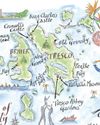
The EMPEROR'S ISLE
Tresco was once a treeless and windswept island, the haunt of smugglers. Dramatically transformed by one man’s vision, it is now one of Britain’s most beautiful spots
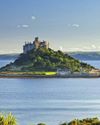
Hidden Cornwall
Discover the beautiful, beguiling and rugged land of West Penwith in the far reaches of Cornwall
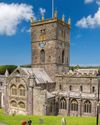
Wonders of Wales
With its wild cliffs, pretty coves and puffins galore, St Brides Bay holds the best of Pembrokeshire
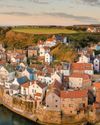
Yorkshire's MOORS & SHORES
Equal parts mystical moor and secluded seashore, the Yorkshire coast beats some of Britain’s more traditional summer destinations hands down
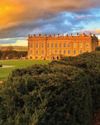
PEAK PERFORMANCE
From heathery moors to rolling hills and underground caverns, the Peak District is home to some of the most majestic landscapes in the country

Culture CAPITAL
After a year of stop-start openings, London's museums are welcoming visitors back in 2021 with an array of blockbuster exhibitions

HISTORIC NORFOLK
Spend time exploring this peaceful county, whose stately homes are a grand counterpoint to its unadorned rural landscapes
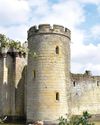
1066 COUNTRY
England’s sunny south coast has a rich heritage, harbouring ancient castles and evocative landscapes that tell the story of the Battle of Hastings and beyond